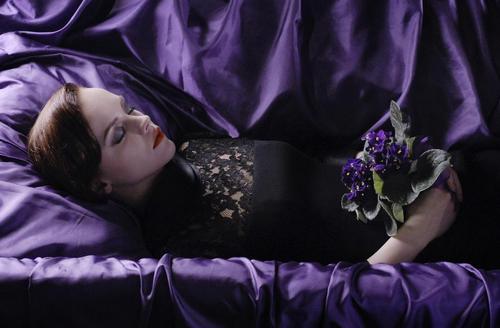Warsaw-born Agnieszka Wojtowicz-Vosloo made her directing and screenwriting debut with After.Life in 2009, an unsettling metaphor for how the majority of us walk around living as though we’re already dead. Following Anna Taylor’s (Christina Ricci) gloomy existence as a middle school teacher with a boyfriend, Paul (Justin Long), whom she loves but cannot express such feelings to, the narrative takes a macabre turn when Anna gets into a car accident after a fight with Paul at a restaurant. When she wakes up again, she finds herself in the basement of a funeral home where the director, Eliot (Liam Neeson), informs her she’s dead, and that he’s the only one capable of communicating with her thanks to his “gift” for helping the dead pass on to the other side.
Unconvinced of this information, Anna remarks, “I thought that when you died you wouldn’t feel any more pain. You wouldn’t have to struggle anymore. But it just never stops, does it?” The pain she’s referring to is her inability to tell Paul how she feels about him thanks to her mother’s general coldness, a trait that affected Anna deeply as a child. She confesses to Eliot, “When I was little I learned that loving someone can hurt. So I decided not to love anyone. So I’d never get hurt again.” And yet, even though she does love Paul, and love is supposed to be one of the grand meanings of life, it still isn’t enough to make her happy the way she should be.
As the tag line of the movie states, “Life is the symptom. Death is the cure.” Eliot sees it as his job to personally extract those from life who he views as walking through it as though they are dead–treating their existence like a chore to be gotten through with minimal incident. One of Anna’s students, Jack (Chandler Canterbury), who took a shine to her because of her niceness toward him when no one else at school would be, is the first to note that her death may not be real after he sees her in a “red dress” (a.k.a. a slip) in the window of the funeral home. When Jack tells Paul after he goes to her school to collect her things, Paul reacts by smacking him across the face. The more he thinks about it, however, the more he’s convinced that Anna can’t be dead. Especially after he receives a call from her at home in the wake of her brief escape from the basement. Nonetheless, Eliot continues to convince her that she’s dead, and that she was living most of her life that way, so what does it matter in any case?
Soon, Anna has let herself be convinced of Eliot’s insistence on her being dead. As he prepares her for her imminent funeral, she asks, “Why do we die?” He replies, “To make life important.” Not quite content with this answer, Anna later muses, “I have so many regrets. I have nothing but regrets. I wanted a different life… Woke up every day, took a shower, drove in the same traffic to work, went home, went to sleep, woke up again. Nothing was ever different.” Indeed, this zombie-like state is how the majority of people carry on from day to day, miserable in their contentedness. Sensing Anna’s deep sadness, Eliot is momentarily willing to let her go and admit that she’s still alive. But when he opens the door, Anna has a flash to a horrible vision, prompting Eliot to balk, “I thought you were different. You all say you’re scared of death. But the truth is you’re more scared of life.”
This is, of course, the crux of the message behind After.Life, which is beautifully shot in the sort of style that would make Dario Argento proud. Although it left many audiences dissatisfied at the time of its release, perhaps they must ask themselves why–is it possibly because the theme hits too close to home?





















